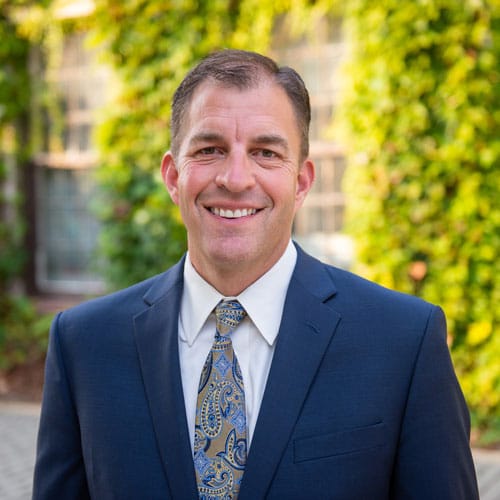Generational Shifts and the Future of Fundraising
Steve Bult, Head of School at Wheaton Academy, and Jennifer Lehman, President and CEO of Mission Advancement, will be leading a breakout session at the upcoming CESA Symposium this October in Charlotte, NC. Their presentation will explore generational shifts in fundraising, focusing on practical ways school leaders can adapt engagement strategies to thrive in today’s rapidly changing philanthropic landscape. Enjoy their insights into your advancement efforts.
With trillions of dollars changing hands annually, the Great Wealth Transfer is no longer a distant headline; it is here. Current projections suggest that by 2048, roughly $124 trillion will be passed on: $105 trillion to heirs and $18 trillion to charities. This unprecedented transfer of resources raises a pressing question for Christian schools and nonprofits alike: how will different generations, Baby Boomers, Gen X, Millennials, and Gen Z, shape the future of philanthropy? And how can school leaders align their communication and donor engagement strategies to meet these evolving expectations?
Donor Behavior Through a Generational Lens
Fundraising has always been rooted in relationships, but those relationships thrive only when organizations recognize the perspective, experiences, and preferences of their donors.
- Baby Boomers and Gen X often value more traditional, formal appeals and are comfortable with annual campaigns, phone calls, and in-person events.
- Millennials and Gen Z often lean toward impact-driven giving, digital communication, stories that demonstrate transparency, and peer-influenced philanthropy.
These generational differences influence how donors prefer to receive communication, the types of events they consider meaningful, and whether they approach giving as a transactional act or an integrated part of their lifestyle. Yet, within these broad trends lies the more profound truth: every donor is unique, and strong fundraising systems must adapt to individuals while still serving the whole constituency.
Balancing Old and New Approaches
This is where the tension and the opportunity emerge. Fundraisers must balance lessons from proven practices with the openness to embrace new approaches. In other words:
- Be personal, but also collective, donors want to feel individually known while also belonging to a larger cause.
- Be teachers, but also learners, schools can share their mission while showing humility and willingness to grow from donor feedback.
- Know when to stand firm and when to pivot. Some traditions sustain trust, while others must be reimagined to resonate with younger generations.
From Theory to Practice: Wheaton Academy’s Story
Steve Bult will walk through his board’s strategic goal of increasing Wheaton Academy’s Warrior Fund from $1 million to $2.5 million annually within five years. This ambitious aim provides a real-world case study in how schools can take big-picture conversations about generational differences and translate them into tangible strategies.
To begin this journey, Wheaton Academy has had to rethink several questions:
- Why is it critical to fundraise specifically for annual dollars?
- How can philanthropy influence commitments and decisions around programs and initiatives?
- How do you energize donors to support an annual fund as opposed to restricted giving?
- What role should major events and fundraisers play in an annual giving strategy?
- How can school leaders, particularly Heads of School and Presidents, lean into their leadership role in donor engagement?
- Which metrics really matter when evaluating annual fundraising health?
Implications for Christian Schools
Every school faces the challenge of expanding its donor base while solidifying support from existing constituencies, current families, alumni, grandparents, and community advocates. Annual funds, capital campaigns, and major initiatives are not isolated efforts but part of a connected ecosystem of philanthropy. As the generational landscape shifts, wise leaders will assess whether their messaging, events, and relationship-building strategies are compelling across age groups.
Ultimately, schools advancing Kingdom education must ensure that fundraising is not framed only as a financial transaction, but as an invitation into mission partnership. By understanding the dynamics of the Great Wealth Transfer, engaging donors across generations, and blending tested strategies with fresh approaches, leaders can position their schools to grow thriving, sustainable giving programs that fuel long-term impact.

Steve Bult is the Head of School at Wheaton Academy, serving as the institution’s 39th Head since August 2018. He is an alumnus of Calvin College with a B.A. in History and holds an M.A. in Educational Administration from Governors State University. Steve began his educational career as a Social Studies teacher in California, later moving on to Chicago Christian High School as a teacher, Assistant Principal, and Principal. He also served as an Adjunct Professor at Trinity Christian College during this period.

Jennifer Lehman is President & CEO of Mission Advancement, bringing more than 25 years of experience in nonprofit management, consulting, and fundraising to her role, where she leads a team focused on strategic, relationship-based, and sustainable fundraising for nonprofits across sectors such as social service, arts, education, and ministry; she earned her Bachelor of Music from Baylor University and a Master of Business Administration in Business & Nonprofit Management from Southern Methodist University, and is recognized for her practical, people-first leadership style that emphasizes donor relationships, intentional strategy, and simplifying the fundraising process for organizations aiming for high-impact growth.